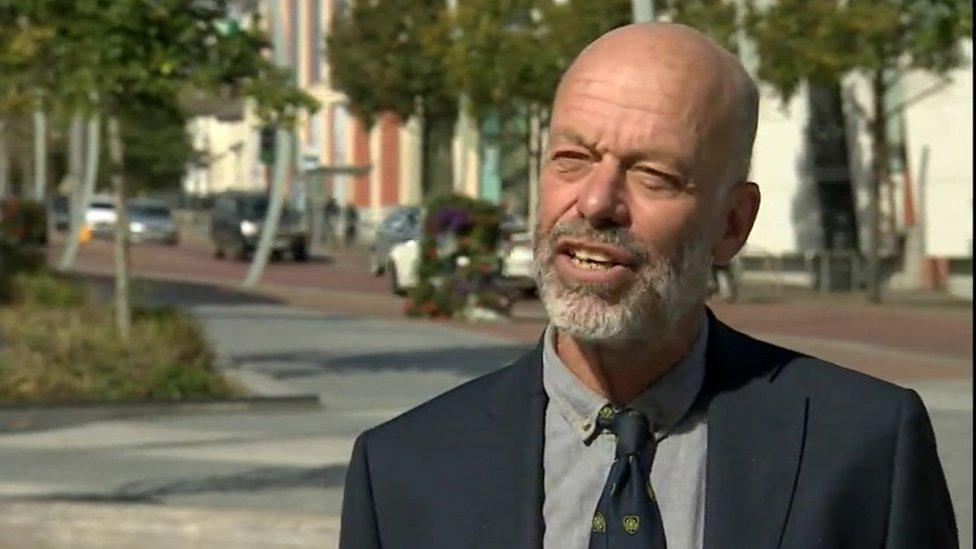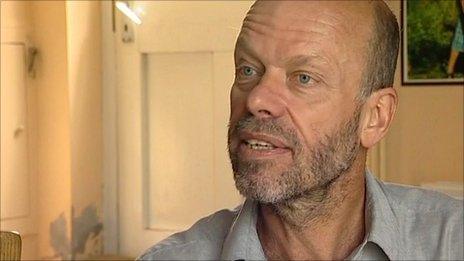Praying Margate doctor overstepped the boundaries, tribunal hears
- Published

Dr Richard Scott was given a formal warning in 2012 after a patient accused him of "pushing his religion" on him
A Christian doctor has been told by a medical tribunal that he "overstepped the boundaries" when he prayed with a patient.
But Dr Richard Scott, from Margate, has been found not guilty of serious misconduct.
Dr Scott talked about his faith to a vulnerable patient, a tribunal of the Medical Practitioners Tribunal Service heard.
He then clasped his patient's hand in prayer, the hearing was told.
The medic also gave the patient a Bible on leaving the Bethesda Medical Centre practice, in Margate, Kent.
The tribunal is sitting to consider if Dr Scott should be given a second warning after a similar case in 2012.
The patient, a 19-year-old man with a history of Attention Deficit Hyperactivity Disorder (ADHD), was suffering with poor mental health when he went to see Dr Scott on 25 August 2022, accompanied by his mother, the tribunal sitting in Manchester heard.
Two weeks later the teenager's mother made a complaint to NHS England about her son's consultation with Dr Scott.
Dr Scott, who ran two mission hospitals in Tanzania before becoming a GP, told the tribunal hearing he decided against the use of anti-depressants for his patient.
Instead he discussed counselling before asking permission to "tackle his issues from a third, spiritual, angle".
Patient 'felt uneasy'
The teenager told the tribunal that he was "taken aback" when the doctor began talking about Christianity.
He said it made him feel "uneasy" and claimed the GP told him he needed to "reconnect" with God.
Dr Scott told the tribunal that he does not pressurise anyone into a spiritual discussion but rather "offers and encourages".
The tribunal found that although the patient did consent to undertake a spiritual discussion, Dr Scott "then overstepped the boundaries".
The ruling continued: "Dr Scott's actions did not cross the high threshold required to be considered serious misconduct."
In June 2012 the General Medical Council (GMC) issued Dr Scott with the warning letter after a patient complained the GP had abused his position to push his religion upon him.
GMC guidance states doctors may practise medicine in accordance with their beliefs provided they do not cause distress to patients.
And they must not impose or express personal beliefs or values, including political, religious and moral beliefs, to patients in ways that exploit their vulnerability or are likely to cause them distress.

Follow BBC South East on Facebook, external, on Twitter, external, and on Instagram, external. Send your story ideas to southeasttoday@bbc.co.uk, external.
Related topics
- Published14 June 2012
